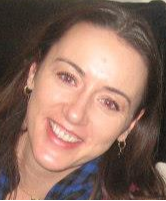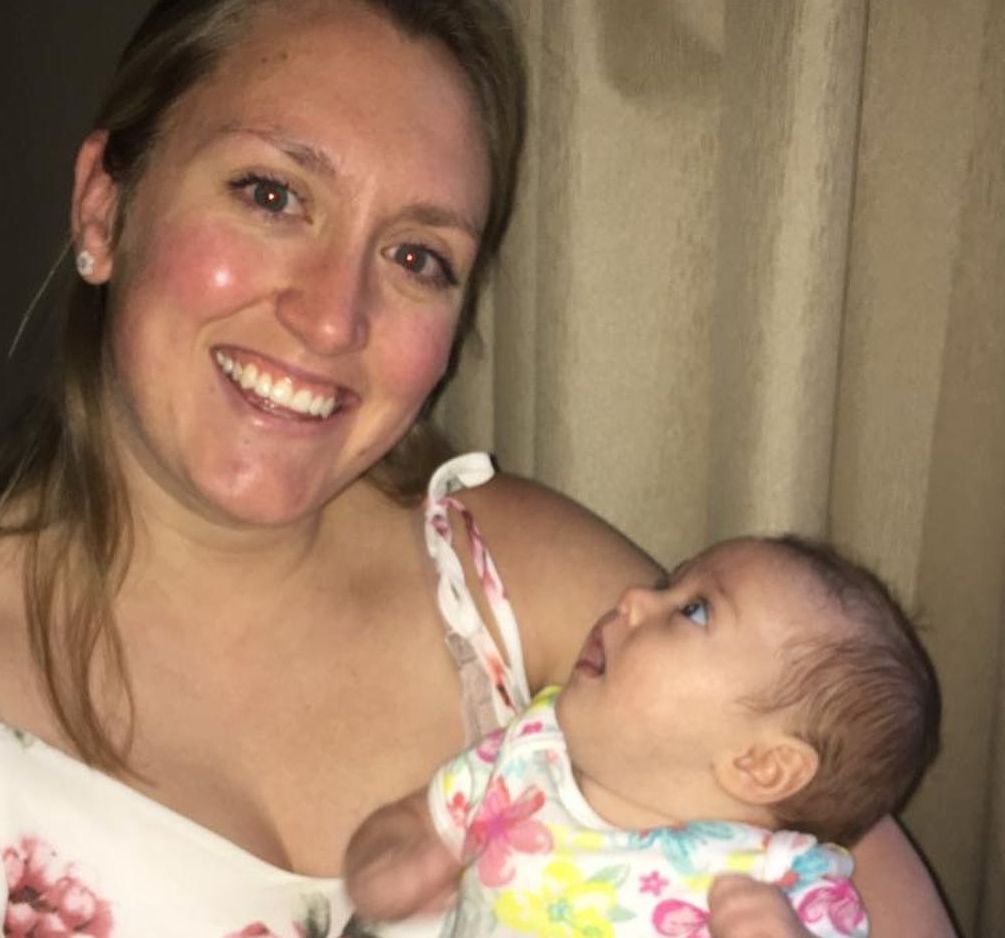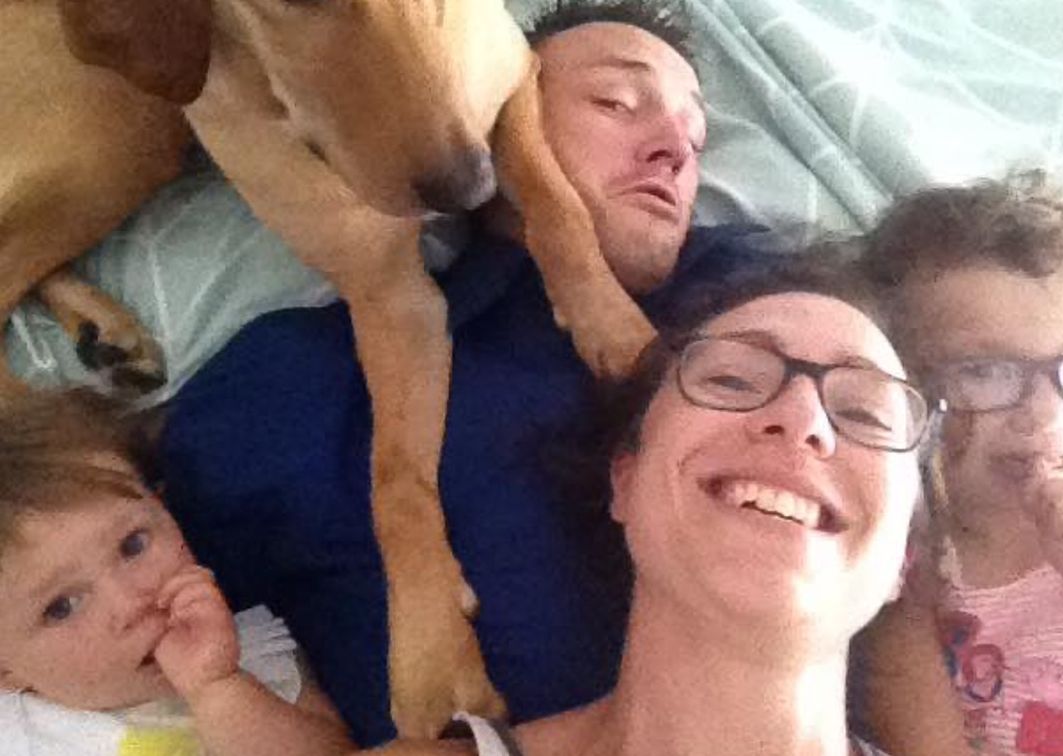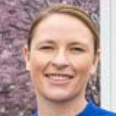The New Science of Building Teams that
Stay, Care and Perform.
- Because connection is the ultimate performance advantage -
If you’ve tried managing harder, motivating more, hiring smarter and other business coaching approaches, but nothing much has changed, then you're in the right place.
Here’s what disconnection is really costing you — in time, money, and energy.
💸 Lost Revenue
Every unfilled position, missed appointment, or disengaged practitioner can cost tens of thousands in lost income each year.
⏳ Lost Time
Recruiting, onboarding, and retraining take weeks – often months – of your attention that could be spent growing the business.
⚡ Lost Energy
You’re drawn into managing conflict, chasing accountability, or trying to motivate people who don’t seem to care as much as you do.
🌀 Lost Momentum
When one person leaves, it ripples through the whole clinic. Morale dips, workloads increase, and your best people start wondering if it’s time to move on too.
💡 The Bottom Line
Every one of these challenges has a financial impact, but the deeper cost is human.
Your time. Your energy. Your sense of purpose.
And yet, there’s a way through.
That’s why we created The Connected Team: The New Science of Building Teams that Stay, Care, and Perform.
In this practical, research-based online training, you’ll discover how to:
✅ Create a culture of accountability without micromanagement
✅ Strengthen retention by building psychological safety
✅ Transform stress and friction into energy and flow
Because the clinics that thrive in the next decade will be the most connected.
Grounded in neuroscience and living-systems thinking, The Connected Team Training helps you see what’s really happening beneath the surface and gives you the tools to transform it.
🌱 Why This Training Matters...
Because what worked before, doesn’t work anymore.
Healthcare has changed. The demands are higher, the pace faster, and the emotional load heavier than ever.
But most leadership and management models are still based on outdated ideas — ones that treat people like parts in a machine rather than living, adaptive systems.
The new science tells a different story:
- Teams aren’t mechanical. They’re multidimensional networks of connection and emotion.
- Safety isn’t a luxury. It’s the foundation of performance.
- Motivation doesn’t come from perks or pressure. It comes from collaboration, trust, and shared meaning.
The Connected Team training translates this new understanding into practical, actionable steps you can take immediately — to turn disconnection into connection.
Save Your Spot for Only $97 AUD (~£47)
In This Online Training, You'll Discover How To:
✅ Read the hidden dynamics that shape trust, motivation, and care.
✅ What your team really responds to – it’s not what you think.
✅ Shift from control to connection — and see performance rise naturally.
✅ Apply simple, practical steps to solve everyday leadership challenges.
✅ Build a clinic where people want to stay, patients love to come, and results speak for themselves.
⚡ Why It Works
Built on Decades of Experience – Backed by the New Science of Human Systems:
-
Neuroscience of emotional regulation and safety (Porges, Siegel, Cozolino)
-
Systems and complexity science (Bateson, Capra, Senge)
-
Behavioural and motivation research (Deci & Ryan, Edmondson)
Together, these frameworks form a new paradigm of leadership for allied health — one that’s relational, regenerative, and deeply human.
🌱 Who This Training Is For...
This training is for clinic owners, team leaders, and practice managers who:
-
Feel like they’re not making the progress that they know they can.
-
Are worried about staff turnover, morale, and stress.
-
Want to lead with clarity, connection, and calm.
-
Believe there’s a better way to build a team that thrives.
Not for you if you:
❌ Want a quick-fix motivational talk
❌ See leadership only as metrics and compliance
How It Works...
The Connected Team Online Training
A powerful, research-informed framework that changes the way your clinic works — from the inside out.
This isn’t another boring management course or fluffy motivational talk.
It’s a deep yet practical re-education in how human systems actually thrive — drawn from the latest neuroscience, systems thinking, and decades of real-world experience leading teams that stay, care, and perform.
Delivered in a LIVE online format, the training gives you the clarity, tools, and language to create a team that feels connected, energised, and cohesive.

🌿 Inside the Training
Part 1 — Seeing the System
Learn to see your team as a living ecology, not a collection of individuals.
Identify the invisible forces — communication flows, emotional currents, safety signals — that drive team behaviour and performance.
→ Tool: The State of the Clinic Ecosystem Map
Part 2 — The Leadership Nervous System
Discover how you can set the tone for the entire team.
Understand the neuroscience of safety, emotion, and motivation — and learn simple practices that keep you steady under stress.
→ Tool: Leadership Nervous System Snapshot & Self-Management Practices
Part 3 — Connection as the Catalyst
Move beyond performance management to performance emergence.
Learn the art and science of creating connection — the foundation for accountability, initiative, and care.
→ Tool: The Team Connection Audit + 3-Minute Meeting Framework
Part 4 — Communication that Regulates
Shift your conversations from transactional to transformational.
Learn how to elicit “warm data” — the stories and signals that reveal what’s really going on beneath the surface.
→ Tool: Warm Data Question Guide + Reflective Scripts
Part 5 — Building Rhythms that Sustain
Replace chaos with coherence.
Design simple team rhythms that build trust, alignment, and vitality — without extra meetings or micromanagement.
→ Tool: Clinic Rhythm Template + Stay, Care & Perform Playbook
Part 6 — From Surviving to Thriving
Integrate the new science into daily leadership practice.
Create a clear, compassionate framework for ongoing growth, feedback, and care — for yourself and your team.
→ Tool: The Connected Team Action Plan + Retention Readiness Checklist
🌺 The Result
By the end of this online training, you’ll:
- Understand the hidden dynamics that shape your team's success.
- Lead with steadiness, clarity, and compassion.
- Build a team that stays because they’re safe, cares because they’re connected, and performs because they’re inspired.
Why You Can Trust This Training
Built on Decades of Experience — and Backed by the New Science of Human Systems.
The Connected Team isn’t theory for theory’s sake. It’s the synthesis of three decades of clinical leadership, cutting-edge neuroscience, and living-systems thinking — distilled into a practical roadmap that any clinic can apply.
Where most programs focus on motivation or management, this one rewires how you see and sense your team — shifting your leadership from reactive to regenerative.
The Research Behind the Framework
Every element of this training is grounded in the evidence of what truly drives human performance, trust, and wellbeing at work:
Neuroscience of Safety & Regulation
Stephen Porges (Polyvagal Theory), Dan Siegel (Interpersonal Neurobiology), Louis Cozolino (Social Brain)
→ How emotional safety drives engagement, innovation, and collaboration.
Systems & Complexity Science
Nora Bateson (Warm Data), Fritjof Capra (Living Systems), Peter Senge (Learning Organisations)
→ Why clinics thrive as ecosystems, not hierarchies.
Motivation & Psychological Safety Research
Amy Edmondson (Psychological Safety), Deci & Ryan (Self-Determination Theory)
→ Why autonomy, belonging, and purpose outperform control and compliance.
Together, these discoveries redefine what leadership looks like in modern healthcare — from managing performance to cultivating conditions where people naturally perform.
Save Your Spot for Only $97 AUD (~£47)Connected Team Training
LIVE, 3 Hour Online Training
00
DAYS
00
HOURS
00
MINS
00
SECS
What Clinic Owners Are Saying:
“This training completely changed how I lead. I realised I’d been managing symptoms, not systems — now my team feels energised, motivated, and aligned.”
— Sarah M., Physiotherapy Clinic Owner, UK
“Within weeks, I noticed the difference — fewer dramas, more collaboration, and a genuine sense of care. It’s the first time in years I’ve felt hopeful about leadership.”
— James T., Podiatry Practice Director, Ireland
“Every clinic owner needs to do this. It gave me language for what I always sensed but couldn’t explain — and the tools to finally shift our culture in a sustainable way.”
— Rebecca K., Allied Health Manager, NSW
You already know how to look beyond symptoms in your patients...
Now it’s time to do the same for your team.
When connections becomes your strategy, everything changes.
They stay. They Care, They perform.
This is more than training.
It’s a new paradigm for how teams in healthcare thrive.
👉 [Join The Connected Team Training Today]
Learn the new science of teams that stay, care, and perform.
Your Investment
Enrol Today — and Lead Your Team into a New Era of Connection and Performance.
The Connected Team: The New Science of Building Teams That Stay, Care and Perform
An online training experience designed for clinic owners, team leaders, and managers who want lasting results — not quick fixes.
🔹 What’s Included
✅ 3 hour LIVE online Training
✅ Practical tools, templates & guides
✅ The Stay, Care & Perform Playbook
✅ Lifetime access to the recording + all future updates
✅ Exclusive Early Bird invitations to future online team trainings
🔒 100% Risk-Free Guarantee
We’re confident this training will change how you see and lead your team.
If after completing the training you don’t feel clearer, more equipped, and more connected in your leadership — simply contact us within 30 days for a full refund.
No questions asked.
🌱 Your Next Step...
You’ve invested in building a business you’re proud of.
Now invest a few hours discovering simple but impactful ways to lead your team.
When your team stays, cares, and performs — everyone wins.
Your clinic stabilises. Your workload lightens. Your impact grows.
👉 [ENROL NOW]
Join the new wave of clinic owners leading with connection, clarity, and care.
Connected Team Training
LIVE, 3 Hour Online Training
00
DAYS
00
HOURS
00
MINS
00
SECS
📚 Key Research Supporting 'Connected Team'
🏛 Institutions & Programmes Endorsing Leading-Edge Team Leadership Practice
Here are 8 prominent institutions (business schools, research centres, executive education providers) and programmes that align closely with our training focus (systems thinking, team ecology, adaptive teaming, psychological safety).
| Institution | Programme / Relevance |
|---|---|
| Harvard Business School (USA) | Course: Dynamic Teaming (HBS Online) – focuses on fluid membership teams in VUCA world, psychological safety, inclusion. online.hbs.edu+1 |
| Harvard University (via HBS & Chan) | Course: Innovations in Teamwork for Health Care – applying “teaming” and psychological safety in healthcare context. harvardonline.harvard.edu |
| Australian National University (ANU) | Complexity Leadership Lab (School of Cybernetics) – research on complexity leadership, adaptive systems in organisations. Fisher College of Business |
| Yale School of Public Health (USA) | Study: Leadership development in complex health systems – explores leadership in dynamic / complex systems context. BMJ Open |
| Oxford Brookes University / Saïd Business School (UK) | Case study: Leadership for integrated care – demonstrates leadership across levels and interdependence in complex healthcare transformation. Emerald |
| Harvard Medical School Center for Primary Care | Research & publications on team-dynamics in primary care transformation and team-based care practices. primarycare.hms.harvard.edu |
| Health LEADS Australia | Framework for leadership in complex health systems in Australia; emphasises complexity, interdependence, systems thinking. WSLHD |
| Harvard Business Publishing / HBR | Multiple resources on teaming, adaptive teams, new rules for teamwork, psychological safety. For example: “New Rules for Teamwork” (Sept 2024) emphasises continuous adaptation and team-ecosystem lens. Harvard Business Review |
Bibliography
-
Bateson, N. (2017). Small Arcs of Larger Circles: Framing through other patterns. Triarchy Press.
-
Beckes, L., & Coan, J. A. (2011). Social Baseline Theory: The role of social proximity in emotion and economy of action. Social and Personality Psychology Compass, 5(12), 976-988.
-
Edmondson, A. C. (1999). Psychological Safety and Learning Behavior in Work Teams. Administrative Science Quarterly, 44(2), 350-383.
-
Edmondson, A. C. (2019). The Fearless Organization: Creating psychological safety in the workplace for learning, innovation, and growth. Wiley.
-
Fuchs, T. (2023). Intercorporeality and Entangled Autopoiesis. Frontiers in Psychology, 14, Article 122-137.
-
Goleman, D. (1998). Working with Emotional Intelligence. Bantam Books.
-
Hollenbeck, J. R., Beersma, B., & Schouten, M. E. H. (2012). Beyond Team Types and Taxonomies: A dimensional scaling conceptualization for team description. Academy of Management Review, 37(1), 82-106.
-
Koopmann, J., Lanaj, K., Wang, M., Zhou, L., & Shi, J. (2016). Looking Around the Corner: The role of foresight in team performance. Organizational Behavior and Human Decision Processes, 135, 23-35.
-
Liu, X., Zhang, C., & Xu, H. (2023). The Impact of Heterogeneous Shared Leadership in Scientific Teams. arXiv preprint arXiv:2306.15804.
-
Mogård, E. V., Rørstad, O. B., & Bang, H. (2023). The Relationship Between Psychological Safety and Management Team Effectiveness: The mediating role of behavioral integration. International Journal of Environmental Research and Public Health, 20(1), 406.
-
Maturana, H., & Varela, F. (1980). Autopoiesis and Cognition: The realization of the living. Reidel.
-
Porges, S. W. (2021). Polyvagal Safety: The emerging Science of Connection. Norton.
-
Putra, S., Setiadi, N. J., Gautama, I., Bandur, A., & Sundjaja, A. M. (2025). The Relationship Between Leadership, Psychological Safety, and Innovation: A bibliometric review analysis. International Journal of Innovative Research and Scientific Studies, 8(3), 2240-2254.
-
Siegel, D. J. (2020). The Developing Mind: How relationships and the brain interact to shape who we are (3rd ed.). Guilford Press.
-
Snowden, D. J. (2010). Complexity: A leader’s framework for decision making. Harvard Business Review.
-
Uhl-Bien, M., Marion, R., & McKelvey, B. (2007). Complexity Leadership Theory: Shifting leadership from the industrial age to the knowledge era. The Leadership Quarterly, 18(4), 298-318.
-
West, M. A. (2012). Effective Teamwork: Practical lessons from organizational research (2nd ed.). BPS Blackwell.
-
Zohar, D., & Luria, G. (2005). A Multilevel Model of Safety Climate: Cross-level relationships between organization and group safety climate. Journal of Applied Psychology, 90(4), 616-628.
Meet Your Trainers:
Ted and Dr Lil Jedynak are internationally recognised educators and clinic leaders with a proven track record of impact. They’ve taught at major institutions including the New York College of Podiatric Medicine and QUT, and are in-demand as educators across the UK, Germany, Italy, Canada, New Zealand, and Australia, specialising in advancing MSK skills.
Beyond clinical education, Ted and Lil are also business development coaches to leading-edge clinic owners worldwide, bringing practical insight into what drives both patient outcomes and practice success. As multiple clinic owners and Telstra Business Award winners, they understand the realities of private practice and the difference great training can make.

Here's What Our Clients Say...

Mary Moore, Podiatrist, Ireland
"I went from performing like a dancing poodle trying to impress people... to a crystal clear heart-felt consult. Your format works brilliantly!"

Mark Hoyland, Podiatrist, ACT
"Ted always delivers the gold standard with his trainings. (His jokes might need some work though)."

Alison Fitzgerald, Podiatrist, Vic
"All I've done is follow the steps Ted & Lil have given us, at times it was scary, confronting and uncomfortable but heck, it works!"

Adam Philps, Podiatrist, NZ
"The sheer velocity of the results with your coaching has been astounding! Your unrelenting positivity and support is infectious."

Simone Schaefer, Physio, South Africa
"Clear vision + plan + guidance meant team harmony in 10 days. I couldn't have done any of it without your support!"

Anne Bloomer, Podiatrist UK
"The clarity and simplicity of what to focus on now, was so spot on, thank you. Your guidance is priceless!"

Hayley & Pete MacFarlane, Podiatrist NSW
"Ted & Lil's mentoring has grown our business skills, our staff have grown in confidence and our business continues to multiply."

Amanda Taylor, Podiatrist, Vic
"Your coaching has made me step out of my comfort zone, and achieve great results for my business, thank you."

Dan Fitzpatrick, Podiatrist, NSW
"Ted & Lil provide insights that I couldn't possibly have achieved on my own. This has reduced stress, wasted time and costly mistakes."


